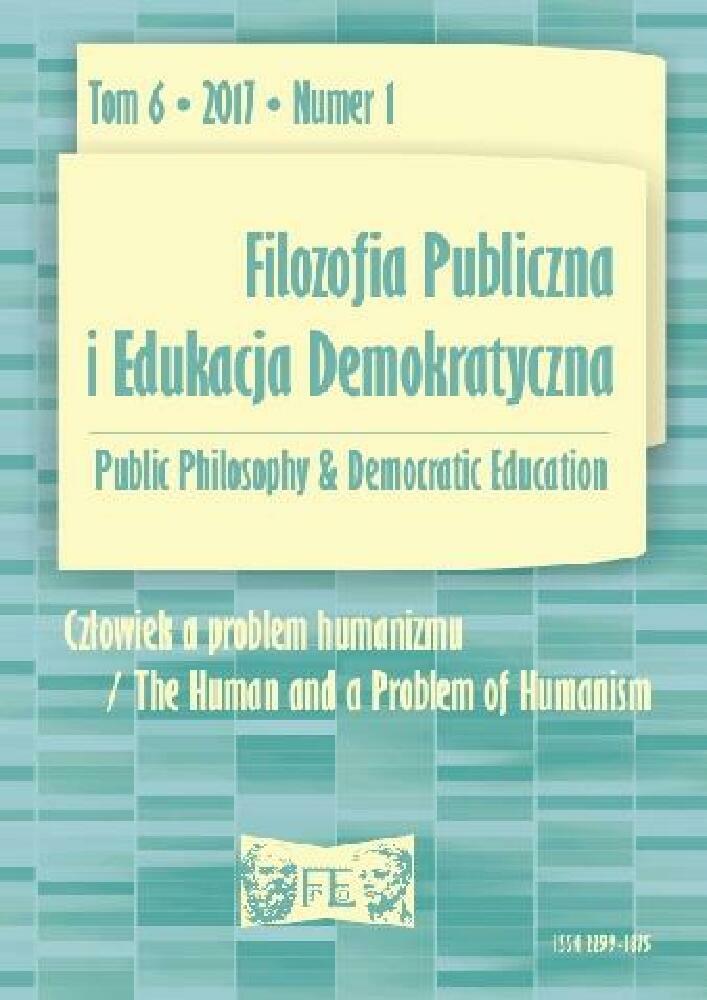Abstract
Presented article concerns existential sources and basis of humanism. The Author presents his own understanding of the title notions and describes human being as weak and incomplete in his essential nature – and whose duty is to hasten his passing. Human is understood as a spirit, existing in space of uncertainty, mystery, mortality, both demanding and somewhat fearsome. Presented considerations include a concept different from phenomenological understanding of human as a pure subject. The Author demonstrates that the theory of the absolute self- consciousness is based on absolute misery and oppression.References
Camus A., Obcy, przeł. M. Zenowicz, Warszawa 1985
Camus A., Upadek, przeł. J. Guze, W.A.B., Warszawa 2014
Daoud K., Sprawa Meursaulta, przeł. M. Szczurek, Karakter, Kraków 2015.
Derrida J., Widma Marksa, przeł. T. Załuski, Wydawnictwo Naukowe PWN, Warszawa 2016
Husserl E., Filozofia jako ścisła nauka, przeł. W. Galewicz, Aletheia, Warszawa 1992
Husserl E., Kryzys europejskiego człowieczeństwa a filozofia, przeł. J. Sidorek, Aletheia, Warszawa 1993
Husserl E., Medytacje kartezjańskie, przeł. A. Weis, Wydawnictwo Naukowe PWN, Warszawa 1982
Kristeva J., Potęga obrzydzenia: esej o wstręcie, przeł. M. Falski, Wydawnictwo Uniwersytetu Jagielońskiego, Kraków 2007
Moryń M., O wyczerpaniu człowieka, w: Człowiek – słowo – działanie.Księga pamiątkowa dla Profesora Bolesława Andrzejewskiego, red. M. Filipiak, M. Wendland, Wydawnictwo Naukowe Wydziału Nauk Społecznych UAM, Poznań 2016
Sartre J.-P., Mdłości, przeł. J. Trznadel, PIW, Warszawa 1974.
License
Copyright (c) Authors retain copyright and publishing rights to their articles in this journal, granting the journal the right to distribute them under the terms of the CC BY-NC-ND 4.0
